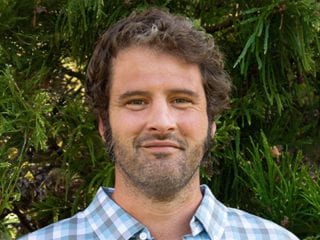Scott Hired as New Archeologist at Parkin Archeological State Park

Dr. Robert J. Scott, new archeologist at Parkin Archeological State Park Research Station.
The Arkansas Archeological Survey is excited to announce the hire of Robert J. Scott to lead their Parkin Archeological State Park research station. Scott will conduct research on the Mississippian, de Soto contact and historic periods of this state-owned National Historic Landmark site to better understand its history and share it with the public in conjunction with Arkansas State Parks staff.
The site was donated to the state of Arkansas by the Archaeological Conservancy and was made a state park in the early 1990s. Parkin is believed to be the capital of the Native American province of Casqui, which was documented by Hernando de Soto’s expedition in 1541 when they entered what is now Arkansas. Artifacts in the museum indicate a Spanish presence at the site. The site was later occupied by the Sawdust Hill Community, who supported the Northern Ohio Cooperage and Lumber Company in the early 1900s.
“I’m excited about the opportunity to synthesize the decades of work done at Parkin,” Scott says. “I plan to initially focus on getting collections inventoried and working with park staff to create and schedule events with the hope of getting the public interested again in the site and archeology of the region.”
“Dr. Scott has long experience with both the survey and the archaeology of the region, and his skills superbly match the needs of the position. I’m confident his work will make Parkin better understood by both scholars and the public, and better known to all Arkansans,” said Alex Barker, director of the Arkansas Archeological Survey.
Scott is currently working remotely to finish his commitments at the UA-Pine Bluff research station, but will be in residence at Parkin full time starting in December. You can find more information and updates on the survey’s website and social media pages.
About the Arkansas Archeological Survey: The Arkansas Archeological Survey was established by statute in 1967 to study Arkansas’ past, to preserve and manage information about archeological sites, and to share this knowledge with the public. The Survey maintains 10 research stations staffed by Ph.D.-level archeologists distributed across Arkansas, as well as a Coordinating Office in Fayetteville also managing more than 7 million artifacts in the Survey’s holdings. The Arkansas Archeological Survey is part of the University of Arkansas System.
This story also appeared in the University of Arkansas News publication.

